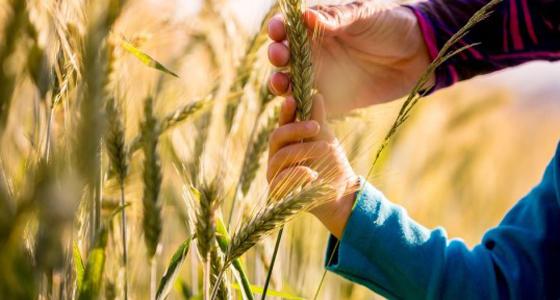In Iraq, more than 3 million people are food insecure. When the fighting becomes too intense and remaining in their home is too risky, men, women and children are often left with only one option, fleeing in a safer place, where they can receive assistance. Indeed, in the immediate aftermath of displacement, receiving food rations, mostly ready-to-eat, is a priority. However, what affected individuals need in the long term is the restoring of their livelihood, especially when they are able to return home and have a family to provide for. That is why ACTED, with the financial support of the Carrefour Foundation, is helping 80 farmers in Diyala by strengthening their agricultural expertise and building their resilience.
Food security remains one of the most acute need for returnees in Diyala
Diyala governorate, located in central-east Iraq, is home to a high number of returnees – the technical term used by the humanitarian community to designate individuals who were previously internally displaced and recently came home. Returning home is never easy: when they flee, these people have to interrupt their income-generating activities, and consequently become extremely vulnerable and dependent on aid.
Before the conflict, many people in Diyala relied on agriculture as the main source of income. In this region, in fact, agricultural capacity is traditionally high, with barley, wheat, cucumber, tomatoes and other crops naturally growing.
The conflict, however, deeply impacted the agricultural sector: lands were damaged, cropping cycles and irrigation systems were disrupted, the availability of agricultural inputs was lowered, and most of machines and tools were damaged. Because of the destruction of the rural infrastructure and the reduced productivity of the land, farmers’ income decreased, sometimes up to 50%, and they found themselves faced to food insecurity.
A step ahead from the traditional training: the Farmer Field School approach
In order to help vulnerable individuals in Diyala to recover and restore food security for themselves and their families, ACTED is providing livelihood opportunities to 80 farmers and their families in Khanaqin district as part of a ‘Farmer Field School’ approach. Farmers are being provided with agricultural inputs that they used to cultivate before displacement, like cucumbers, tomatoes, cowpea, eggplants, and water melon seeds and are receiving training on climate-smart and effective plant and harvesting.
As part of the Farmer Field School approach, farmers are working together in a communal demonstration garden, where they take part in real time and participatory demonstrations on the use of seeds and natural fertilizers, and learn about environmentally-friendly agricultural techniques. By offering a practical training and regular supervision, this Farmer Field School approach has the added value of teaching farmers new environmentally-friendly agricultural techniques, which in turn ensures lands are used in a sustainable way. As a result of this project, not only farmers are restoring the short-term food security for themselves and their families, but are also becoming self-sufficient in the long term.
Improved food consumption and sales of the surplus for 80 farmers
As emphasized by Qasim, the Project Manager, “farmers have shown a genuine interest and passion in the project and are committed to learn as much as they can on climate-smart cultivation techniques. Since the beginning of the training, their knowledge of farming, fertilizers and pesticides has increased, and they have been applying all they have been taught”.
The success of this project rests on the fact that it is building on the demand for locally produced crops to create durable livelihood opportunities for farmers in a district where agricultural capacity remains high even after the conflict. The training and the opportunity to practice what they learned in the demonstration garden has been extremely beneficial for farmers, and is making it easier for them to recover. By cultivating a wide range of crops, farmers are able not only to address the food needs of their families while ensuring a dietary diversity, but can also sell the surplus in the local markets, thereby restoring their means of income and improving their self-sufficiency.
Despite the difficulties faced by individuals who return home following displacement, through the implementation of projects like this, ACTED is making recovery easier for them, and doing its best to ensure they are able to provide for themselves in a long term perspective.
ACTED
1 June






















































